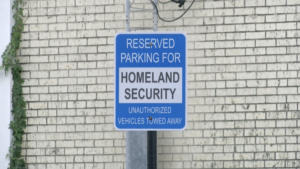EDINBURG – Local communities in the Valley have voiced their concerns regarding the impending construction of the Rio Bravo Pipeline, a liquid natural gas (LNG) pipeline project planned to run along the coast of South Texas.
The Federal Energy Regulatory Commission affirmed the pipeline for approval in April, allowing partnered companies Enbridge and NextDecade to move ahead and clear the estimated 311.5 acres of land required for the pipeline’s passageways.
In a press release following the pipeline’s final investment decision, Matt Schatzman, CEO of NextDecade, provided a statement on the impact of the project to the RGV.
“We look forward to delivering this important LNG project that will supply the world with reliable, and lower-carbon LNG, while proudly supporting the Rio Grande Valley community by investing billions of dollars and creating thousands of much needed and well-deserved jobs.” Schatzman said.
One of the groups who dissented against the pipeline’s construction is the Carrizo/Comecrudo Tribe of South Texas, whose land is in the clearance area of the pipeline.
Juan Mancias, chairman of the Carrizo/Comecrudo Tribe, said that the RGV LNG project has had a negative impact on their land.
“For them to say, we didn’t find anything, nothing happened. I’m not going to believe you until you give me some documentation,” Mancias said, “They’re polluting the river, they’re polluting the wetlands, and without any respect, they’re going through our sacred sites.”
Other organizations allying with the tribe include Voces Unidas RGV, Texas Sierra Club, and Another Gulf is Possible, a women-of-color centered group who have petitioned the construction of gas pipelines and the usage of fossil fuels.
Another Gulf is Possible said that while the project is still approved, there is still the possibility of a future vote to overturn the current decision from the FERC.
Currently, the RGV LNG project is expected to break ground in 2025, as per NextDecade and Enbridge.




